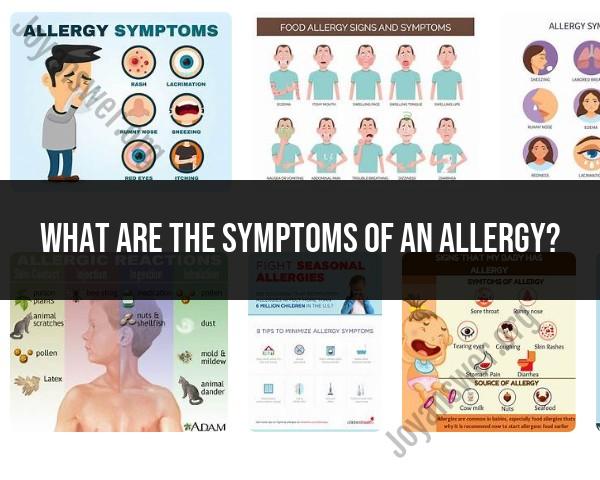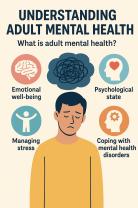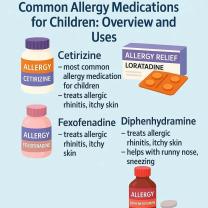What are the symptoms of an allergy?
Allergies can manifest with a wide range of symptoms, and the specific symptoms may vary depending on the allergen and the individual's immune response. Common allergy symptoms include:
Sneezing: Frequent sneezing is a common symptom, especially with allergies to airborne allergens like pollen, dust mites, or pet dander.
Runny or Stuffy Nose: Allergic rhinitis often causes a runny or congested nose, commonly referred to as "hay fever."
Itchy or Watery Eyes: Allergies can lead to itching and watering of the eyes, a condition known as allergic conjunctivitis.
Coughing: Persistent coughing, especially when accompanied by other allergy symptoms, can be a sign of allergy-induced asthma.
Wheezing: Wheezing and shortness of breath may occur in individuals with allergic asthma.
Skin Rash or Hives: Allergies can cause skin reactions like hives (raised, itchy welts) or eczema (red, itchy skin).
Swelling: Swelling, particularly of the face, lips, or tongue, is a symptom of severe allergic reactions, such as anaphylaxis.
Fatigue: Allergic reactions can lead to fatigue or a general feeling of being unwell.
Headache: Some individuals experience headaches as a result of allergies.
Digestive Symptoms: Allergies can manifest as gastrointestinal symptoms, including nausea, vomiting, diarrhea, and abdominal pain.
Anaphylaxis: In severe cases, allergies can trigger a life-threatening allergic reaction known as anaphylaxis. Symptoms may include difficulty breathing, a sudden drop in blood pressure, swelling of the throat, and loss of consciousness. Anaphylaxis requires immediate medical attention.
Common allergens that can trigger these symptoms include:
- Pollen: From trees, grasses, and weeds, causing seasonal allergies.
- Dust Mites: Tiny insects found in household dust.
- Mold: Indoor and outdoor molds can be allergenic.
- Pet Dander: Allergens found in skin flakes, urine, and saliva from cats, dogs, and other animals.
- Insect Stings: Bee stings, wasp stings, and ant bites can cause allergic reactions.
- Food: Common food allergens include peanuts, tree nuts, milk, eggs, soy, wheat, fish, and shellfish.
It's important to recognize and address allergy symptoms, as they can significantly impact a person's quality of life. If you suspect that you have allergies, consider consulting an allergist or immunologist for proper evaluation, diagnosis, and treatment options. In some cases, allergy testing may be necessary to identify specific allergens. Allergists can recommend allergy medications, immunotherapy (allergy shots), and other strategies to manage and alleviate allergy symptoms.
Common Symptoms of Allergies
The most common symptoms of allergies include:
- Sneezing
- Runny or stuffy nose
- Itchy eyes, nose, or throat
- Watery eyes
- Cough
- Wheezing
- Rash
- Hives
- Swelling of the lips, tongue, or face
- Anaphylaxis (a severe and potentially life-threatening allergic reaction)
How to Identify an Allergic Reaction
An allergic reaction can occur within minutes or even hours of exposure to an allergen. The symptoms of an allergic reaction can vary from mild to severe.
Mild allergic reactions may cause symptoms such as itchy eyes, runny nose, or hives. Severe allergic reactions can cause symptoms such as wheezing, swelling of the lips, tongue, or face, and anaphylaxis.
If you experience any of the symptoms of a severe allergic reaction, seek medical attention immediately.
Seasonal Allergies vs. Food Allergies: Key Differences
Seasonal allergies, also known as hay fever, are caused by allergens in the air, such as pollen, dust mites, or mold. Seasonal allergies typically occur during certain times of the year, such as the spring and fall.
Food allergies are caused by an allergic reaction to certain foods. Food allergies can occur at any time of the year and can be life-threatening.
Some of the key differences between seasonal allergies and food allergies include:
Seasonal Allergies
- Caused by allergens in the air
- Typically occur during certain times of the year
- Symptoms may be mild or severe
Food Allergies
- Caused by an allergic reaction to certain foods
- Can occur at any time of the year
- Symptoms can be mild or severe, but can also be life-threatening
Managing Allergy Symptoms: Tips and Tricks
There are a number of things you can do to manage your allergy symptoms. Here are a few tips and tricks:
- Avoid your allergens whenever possible. This may mean staying indoors on high pollen days or avoiding certain foods.
- Take over-the-counter allergy medications, such as antihistamines or decongestants.
- Use a nasal saline spray to flush out allergens from your nose.
- Get regular allergy shots. Allergy shots can help to reduce your sensitivity to allergens over time.
When to Seek Medical Help for Allergies
If your allergy symptoms are severe or if they are not responding to over-the-counter medications, seek medical attention. Your doctor may prescribe stronger allergy medications or recommend other treatments.
You should also seek medical attention if you experience any of the symptoms of a severe allergic reaction, such as wheezing, swelling of the lips, tongue, or face, and anaphylaxis.
If you have any concerns about your allergies, talk to your doctor. They can help you to develop a treatment plan to manage your symptoms and improve your quality of life.












